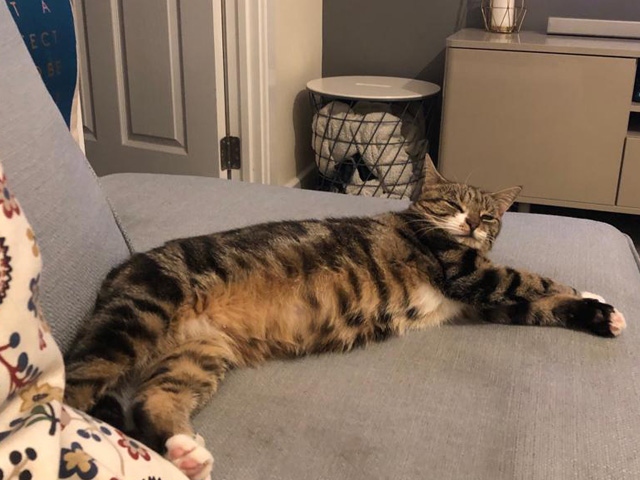RSPCA in our region gets a call every half hour about concerns for cats
Date published: 07 August 2019

The RSPCA rehomes cats across our region
The charity says there were 16,942 calls coming through to its cruelty line from the North West of England last year.
Across England and Wales the charity received more than 100,000 calls and rescues more cats than any other animal - whether this is moggies stuck in tight spots, to cats that have been abandoned or neglected and abused.
August 8th is International Cat Day and the RSPCA is shining a light on the plight of cats and how we can help them.
Alice Potter, RSPCA’s cat welfare expert said: “It’s sad to see that we have received so many calls about cats in need.
"Cats end up needing our help for a variety of reasons, for example their natural curiosity can mean they need rescuing when they get into scrapes and tricky situations.
"There are also some real issues that we see time and again including cats and kittens being abandoned, cats having unplanned and unwanted pregnancies due to a lack of neutering and multi-cat households where breeding has sadly become out of control.
“However, there are many cats who are much luckier and are very much a part of the family and loved by their owners who understand their likes and dislikes, their little quirks and routines.
"Every cat is an individual but there are some signs we can look out for to see how our cats are feeling through understanding their body language and behaviour to ensure they are happy and healthy.”
The RSPCA has a list of tips for caring for cats:
- Cats who are feeling anxious or fearful often like to hide away - this can help them cope better. Always ensure your cat has lots of cosy hiding places around the house.
- A cat who is feeling friendly and happy to meet you will approach with their tail held upright with the tip of the tail curved. Most cats prefer to initiate any interaction so give them time to come to you.
- Rolling over onto their back and showing their tummy can be a sign your cat feels comfortable and safe around you. This is not however, an invitation to rub their belly! Most cats do not enjoy a belly rub and may react defensively. Instead, you may like to give them a gentle stroke on their head or cheeks.
- Look out for any changes in your cats usual behaviour, for example changes to their eating toileting or sleeping habits - any change may indicate that something isn’t right and you may need to seek advice from your vet.
Most Viewed News Stories
- 1Changes to Oldham regeneration project will cost additional £7m
- 2Controversial scheme on greenbelt given planning permission
- 3A third of Oldham is worse off than six years ago, say government statistics
- 4Oldham charity which has helped 20,000 families up for national accolade
- 5Tributes paid as Saddleworth mum and breast cancer campaigner Jo passes away, aged 56




